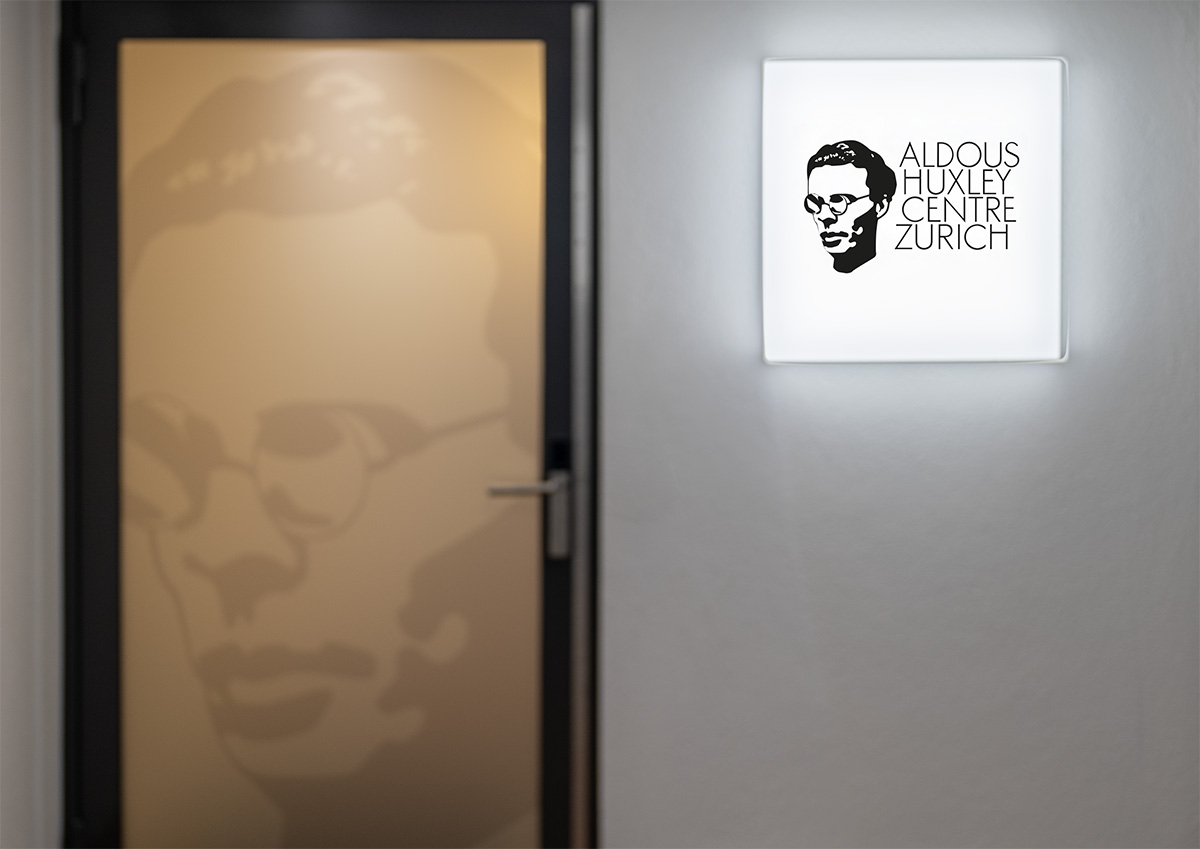Philosophy

Date
- 15.12.2023
- Expired!
Time
- 15:00 - 17:00
Cost
- Free
Programme 2nd Year
Aldous Huxley had a deep and abiding interest in philosophy, and his writings and personal statements reflect his engagement with various philosophical ideas and themes. Here are some key aspects of Huxley’s thoughts on philosophy:
- Interest in Mysticism and Eastern Philosophy
Huxley was particularly drawn to Eastern philosophy, mysticism, and spirituality. He explored the teachings of Hinduism, Buddhism, and other Eastern traditions in his quest for spiritual understanding. This interest is evident in his book “The Perennial Philosophy“, where he identifies common spiritual truths across different religious and philosophical traditions. - Philosophical Inquiry in Literature
Huxley often incorporated philosophical themes and ideas into his novels and essays. His characters engage in philosophical contemplation and grapple with questions about the nature of reality, the self, and the meaning of life. For example, in “Eyeless in Gaza“, the protagonist undergoes a philosophical transformation. - Ethical and Moral Concerns
Huxley was concerned with ethical and moral questions, and these themes frequently appear in his works. He explored issues related to the human condition, personal ethics, and the consequences of moral choices. His writings often raised questions about the ethical implications of scientific and technological advancements. - Critique of Materialism
Huxley was critical of materialism and the excessive focus on material pursuits in modern society. He believed that a purely materialistic worldview could lead to a sense of spiritual emptiness and alienation. He saw philosophy as a means of addressing these concerns and seeking deeper meaning in life. - Individualism and Freedom
Huxley valued individualism and personal freedom, and these themes are evident in his writings. He explored the tension between individual autonomy and the constraints of society, often critiquing systems that suppress individuality in favor of conformity. - Exploration of Consciousness
Huxley’s interest in altered states of consciousness, often induced through the use of psychedelics, led him to contemplate the nature of human consciousness and the boundaries of perception. He saw philosophy as a tool for exploring the mysteries of the mind and expanding one’s awareness. - Utopian and Dystopian Visions
In novels like “Brave New World” and “Island“, Huxley presented philosophical inquiries into the nature of utopian and dystopian societies. These works explore questions about the ideal society, the role of government, and the consequences of societal choices.
In summary, Aldous Huxley’s thoughts on philosophy encompassed a wide range of philosophical inquiries, from metaphysical and existential questions to ethical and moral concerns. His engagement with Eastern philosophy, his exploration of mysticism, and his critique of materialism and conformity all contributed to a rich and multifaceted philosophical perspective that is evident throughout his body of work.
Reading for next lecture
– Relevant essays volumes IV-VI
Book list
Complete Essays Volume IV
(Ivan R. Dee)
In this fourth installment of a planned six-volume collection, Aldous Huxley expresses profound concerns regarding the trajectory of history during the late 1930s, a period marked by the looming specter of a second global war. Throughout this volume, many of his essays delve into his enduring fascination with popular culture’s conventions, as well as the interplay between philosophy, science, and history, particularly in relation to their influence on developments in the realms of art and politics. Yet, his overarching preoccupations oscillate between the realms of empirical science and the intricate tapestry of social history on one hand, and a relentless quest for an absolute truth that transcends them both.
Within these pages, Huxley’s critical examination extends to the political landscape and the prevailing ideologies of fascism and capitalism, all the while intertwining with his pursuit of a foundational truth in a world characterized by constant change and diversity. Notably, he embraced a brand of political pacifism that intersected with a growing attraction to religious quietism and mysticism. Simultaneously, he undertook a concerted effort to reconcile mystical experiences with contemporary theories of physics and the philosophy of science.
At their zenith, Huxley’s essays represent some of the most exceptional examples of the genre in modern literature. This collection is deemed a remarkable publishing event, distinguished by its meticulous production and authoritative editing.
Complete Essays Volume V
(Ivan R. Dee)
Within this penultimate volume, Huxley persists in his examination of the place of science and technology within contemporary society. Simultaneously, he embarks on a quest for the ultimate and definitive Truth that could serve as the bedrock for his burgeoning fascination with religious mysticism. It is within this period that his philosophy of history attains its conclusive shape and substance.
In their most refined manifestations, Huxley’s essays continue to shine as exemplary instances of the genre within modern literature.
Complete Essays Volume VI
(Ivan R. Dee)
In this culminating and final volume of Huxley’s essays, we witness the culmination of what critics have hailed as “an extraordinary publishing achievement, meticulously crafted and expertly curated.” Within these pages, Huxley offers his ultimate evaluation of contemporary society. Returning to the themes that underpinned his dystopian masterpiece, “Brave New World,” he delves into a wide spectrum of contemporary subjects, ranging from ecology, sociobiology, and psychology to politics, history, and religion. His deep-seated concerns about the challenges posed by modernity permeate his writings.
This volume also features Huxley’s ultimate contemplation on the intersection of art and religion in “Shakespeare and Religion,” along with the inclusion of two recently discovered essays on science, technology, and the complexities of “modern life.” Volume VI additionally stands as a notable entry into Huxley’s engagement with the C. P. Snow/F. R. Leavis controversy surrounding the “two cultures.” During the early 1960s, the relationship between science and the humanities was a fiercely debated topic, drawing the participation of luminaries such as Lionel Trilling and scientists like J. Robert Oppenheimer. Huxley’s response to this discourse was “Literature and Science,” his final book, which serves as a summative expression of his theories on art and culture.
As one of the last prominent public intellectuals of the modernist era, Huxley’s essays present a reframing of modern cultural history in all its multifaceted dimensions.
Location

Opening Hour
15:00Organizer

Robin Hull, lic.phil. Dip RSA
Huxley Centre / Hull's School
QR-CODE
